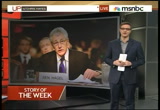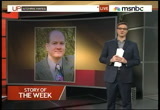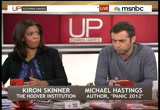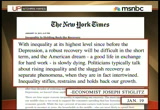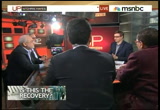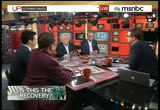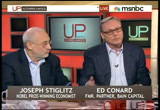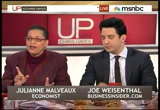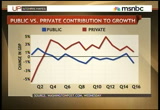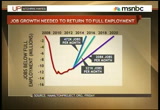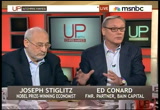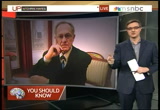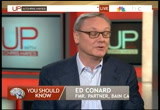tv Up W Chris Hayes MSNBC February 3, 2013 8:00am-10:00am EST
8:00 am
with a prepaid card. spends like cash. feels like membership. good morning, erch. i'm chris hayes. here in the u.s., it is super bowl sunday. last night aid yee wran peterson, back from an acl injury, beat out peyton manning for the nfl's most valuable player award. right now, my story of the week. war and that other thing. thursday's senate confirmation hearing for chuck hagel was an omni directional embarrassing debacle for everyone involved.
8:01 am
first there was the senate republican republicans. republican senator after republican senator threw questions at hagel that even by the debate standards of a nominating hearing were the cheapest kind of demagoguery and bullying. >> why do you think that the iranian foreign ministry so strongly supports your nomination to be the secretary of defense? >> to go on al jazeera, a foreign network broadcasting propaganda to nations that are hostile to us and to explicitly agree with the characterization of the united states as the world's bully, i would suggest is not the conduct one would expect of a secretary of defense. >> you continue to fold, i believe, extreme views far to the left of even this administration. >> if you were a visitor from another country and you just
8:02 am
listen to hagel's republican interlocaters, you would have had to ask where did this moral monster come from? and the answer is, of course, is mostly in the republican senate caucus. watching lindsay graham make the pained gassy face of displeasure while he listened to hagel, i wonder how you ever stomached sitting next to hagel for all those years or how john mccain could have said this in 2000 about secretary of defense positions. >> there's a lot of people that could do that. one of them i think is senator chuck hagel. >> then there were the democrats on the committee who seemed intent to steer clear of big questions opting instead to praise hagel's war service, praise israel or gently lead the witness back to approved foreign policy bromides and away tr dangerous taboos. >> your commitment that i ran
8:03 am
should not under any circumstances have had ability to have a nuclear weapon. and i appreciate that position very much. >> and i appreciate your taking the time to meet with me. we had an extensive discussion and your understanding of the complex challenges we face in the middle east and the importance of our alliance with israel. >> i would like for you as the committee is getting to know you, know something about your service in vietnam and your combat experience. were you wounded, senator hagel? >> finally, there was the nominee himself, who appeared to have prepared for the hearing by skimming a few briefing talking points on his cab right to the capital and who rather than defending some of hits comments on foreign policy, the importance of exhausting every chance of peace rather than leaping into the horrors of war, the dysfunctional congressional
8:04 am
politics of israel/palestine, he seemed resign to glumly recant. >> name one person, in your opinion, who is intimidated by the israeli lobby in the united states senate. >> well, first -- >> name one. >> i don't know. >> well, why would you say it? >> i didn't have in mind a specific person. >> do you agree it's a provocative statement? that i can't think of a more provocative thing to say about the relationship between the united states and israel and the senate or the congress than what you said. name one dumb thing we've had goetded into doing from the pressure of the valley or jewish lobby. >> i have already stated that i regret the terminology. >> american conserve ifr daniel mccarthy who comes from the realist addition of tweeted, this senate hearing is like a malice criticism session.
8:05 am
and he was right. american military and foreign policy is doing just great, that the status quo establishment consensus on threats and possible wars is a holy catechism from which no theory can be tolerated. instead of doing penance every single day for the rest of their natural lives for the deaths of 4,042 americans and the deaths of at least 650,000 iraqis, the architects and principal advocates of the iraq war angry brave for more, more aggression, bigger military and more wars. and the nonin the ocon conservatives seem to meekly nod along. the dnc didn't even issue a press release all day. so all of the lessons that could have been learned go unlearned. as we enter the naon's history, so many senators seem intense on laying the groundwork for the next war in iran, they,
8:06 am
iran was mentioned 986 times, afghanistan warranted just 26 mentions. why trouble ourselves with that old thing when there are new shiny conflicts on the horizon? more revealingly, in more than 430,000 words in the tript, the words war was mentioned 440 times while the word peace wag mentioned three times. no wonder we've been at war for so long. joining me now, a member of the bush pentagon's defense policy board, michael hastings author of the new digital book "panic 2012, the sublime and terrifying inside story of obama's final campaign ♪ ♪ barbara siegel, also washington correspondent for the middle east website al
8:07 am
monitor.com. great to have you all here. >> thank you. >> so i am -- well, where to start? i think the lessons unlearned to me was the most troubling. it seemed to me we had a moment in 2008 particularly in which president obama articulated this kind of alternative foreign policy vision and did so quite forthrightly. for instance, negotiations with iran and ahmadinejad. and somehow four years later, we've moved backwards, right? the old -- i guess as we've gotten further away from the debacle of iraq, as that's more remote in people's memory, there's more and more the sense of iraq ended up okay and you saw this -- i thought it was so interesting, it was the relitigation of the surge. because that in some ways is this key narrative plot point that somehow redeem tess entire war. and so you saw, for instance, john mccain, incredibly invested
8:08 am
in redeeming the surge. check this out and then i want to hear your reaction to it. take a look. >> you stand by that -- those comments, senator hagel? >> well, senator, i stand by them because i made them. and -- >> were you right? were you correct in your assessment? >> well, i would defer to the judgment of history to sort that out, but i'll -- >> i think this committee deserves your judgment as to whether you were right or wrong about the surge. >> i'll explain why i made those comments and -- >> i want to know if you were right or wrong. that's a direct question. i expect a direct answer. >> the surge assisted in the objective. but if we review the record a little bit -- >> can you please answer the question. were you correct or incorrect when you said that the surge would be the most dangerous foreign policy blunder in this country since vietnam? were you correct or incorrect, yes or no? >> my reference to the --
8:09 am
>> are you answering the question, senator hagel? the question was were you right or wrong. that's a straightforward question. i would like the answer whether you were right or long and then you are free to elaborate. >> well, i'm not going to give you a yes-or-no answer on a lot of on things today. >> well, let the record show that you refused to answer that question. please go ahead. >> well, if you would like me to explain why i -- >> no. i actually would like an answer, yes or no. >> i'm not going to give you a yes or no. i think it's far more complicated than that, as i've already said. my answer is, i'll defer that judgment to history. >> you worked in foreign policy circles among republican candidates. where is your understanding of where their understanding is of the iraq war and the importance the surge plays in somehow making the rest of it okay. >> well, there's no one kind of republican center and that's what we were seeing in these
8:10 am
hearings. i think it's the fracture in the republican party with manifest and this hearing was a proxy for the breakdown in having a foreign policy and domestic policy center among republicans. and it wasn't so much about chuck hagel as the absence of a consensus and an alternative point of view among republicans. i actually think that there is something of an emerging bipartisanship in foreign policy. just as you stated, there was the hope and change approach across the board in candidate obama in 2008. four years later, we see republicans and democrats actually converging on a number of issues, like afghanistan, that we've got to exit in 2014 without a clear sense of what the residual force will look like. what is happening in this hearing, i can, is that a number of the more conservative republicans were trying to figure out how to stake out a position for what they have
8:11 am
stood for as much as what's happening in the party is converging with the democrats. we saw that with romney and the campaign. he didn't show up with an alternative point of view. so i think some senators like mccain are trying to save a republican kind of alternative spirit when, in fact, there's a lot of consensus emerging in the foreign policy realm. >> that's a fascinating point. i think to me what i found so troubling as lefty old me was that basically you have bipartisan consensus, you have a right flank in the personages of lindsay graham and john mccain and ted cruz and there was nothing on the left, right? there was no one affirmatively making the case for anything to the left of what has become. i think you're totally right, this bipartisan consensus here. >> the answer to senator mccain's question was given this sunday in kirkuk where there were 35 iraqis killed. it was given in october where
8:12 am
you had 325 iraqis killed. that is the answer to whether the srnlg was a success. that is one of the answers. the other answer is to step back and say how was the surge a success? it was a political success in washington, a political failure in baghdad. it was a political success in washington because you could stand up now with the american people and with a straight face pretend that the iraq war was not a total catastrophe. and the democrats, they've seeded the ground on it. because when obama became the commander in chief, he had to put on the stance that, look, it might have been a really dumb decision, but you guys have done great and the surge worked and the surge, in fact, worked so well we're going to go to afghanistan. that was the argument to go there. so i think they see the narrative and it's tough to get it back. and -- >> the surge in both cases has some political implication here. it's covering the u.s. rear so that the united states can withdrawal its troops, leave these countries to whatever their fates are going to be and say, well, we tried.
8:13 am
we put in the maximum effort. and i thought it was unseemly the way in which mccain tight to get chuck hagel to say yes or no. clearly this country is in a great deal of trouble and clearly we have to await the judgment of history and see how this comes out five years, ten years down the radio row. >> that's only one period in a multi year ward. >> hagel tried to talk about the other things, but he was cut off. >> the surge is one part of the bipartisan narrative about how military policy has operated. there were a whole bunch of other aspects that chuck hagel ran afoul of and was forced to recant. we'll talk about that right after this. little did i know that one week later i wasn't smoking. [ male announcer ] along with support, chantix is proven to help people quit smoking. it reduces the urge to smoke. some people had changes in behavior, thinking or mood, hostility, agitation, depressed mood and suicidal thoughts or actions while taking or after stopping chantix.
8:14 am
if you notice any of these stop taking chantix and call your doctor right away. tell your doctor about any history of depression or other mental health problems, which could get worse while taking chantix. don't take chantix if you've had a serious allergic or skin reaction to it. if you develop these stop taking chantix and see your doctor right away as some can be life-threatening. if you have a history of heart or blood vessel problems, tell your doctor if you have new or worse symptoms. get medical help right away if you have symptoms of a heart attack. use caution when driving or operating machinery. common side effects include nausea, trouble sleeping and unusual dreams. it helps to have people around you... they say, you're much bigger than this. and you are. [ male announcer ] ask your doctor if chantix is right for you. in that time there've been some good days. and some difficult ones. but, through it all, we've persevered, supporting some of the biggest ideas in modern history. so why should our anniversary matter to you? because for 200 years, we've been helping ideas move from ambition to achievement.
8:15 am
and the next great idea could be yours. ♪ [ female announcer ] for everything your face has to face. face it with puffs ultra soft & strong. puffs has soft, air-fluffed pillows for 40% more cushiony thickness. face every day with puffs softness. stay top of mind with customers? from deals that bring them in with an offer... to social media promotions that turn fans into customers... to events that engage and create buzz... to e-mails that keep loyal customers coming back,
8:16 am
8:17 am
want to hit it again. it's a totally different interpretation of the hearing than i had, which is basically the kind of most siffirous theatercality shows broadening bipartisan consensus emerging and the foreign policy in america is decentered. >> absolutely. that's what was happening. i think chuck hagel represents something of a center in the republican party, which may be hard to believe given the way that he was being secured in the hearing. >> it is hard to believe. >> but when you listen to his prepared statement, not the actual questions, it wasser hard for most americans to disagree with what he was saying. there was the internationalist component that we need our alliances. they're going to be an important as they've ever been, perhaps more. there will be new configuration of alliances. new burden sharing.
8:18 am
he's known to have supported global zero but he talked about a strong nuclear presence until we can get rid of nuclear weapons. that's really hard for the republican right to hear. >> but what's interesting, he represents an older foreign policy consensus, right? >> eisenhower. >> exactly. that doesn't exist any more. in some ways, the reason he's such a threat, the reason he was treated with such contempt is because of the fact that his personal biography and his decorated veteran -- he has this kind of unique credibility to speak about the horrors of war. there's this quote from this new yorker profile when he's talking about his opposition and he says, if you listen to his colleagues talk about more troops in iraq, he was struck as if it was an abdomen administration. very few people now about the war, very few are touched by it. now we're going to send 30,000
8:19 am
more troops into the meat grinder. the meat grinder is such an intense term to use for the horrors of war that you don't hear u.s. senators throw around. what i find disturbing is that this consensus, this bipartisan to me has moved to the right, particularly if you look at something like iran. we were talking negotiations for years ago and now we're talking toughness. >> yeah. now like the standard is -- i mean, it was pretty amazing to watch hagel question about iran and act like the administration's position was that we should talk to iran. they just grilled him like it wasn't -- like he's totally out of line with the country when really he's perfectly in line with the democratic party and the administration. but the congress is a totally dysfunctional snooegz institution on foreign policy. i agree with you, i don't think that leadership is going to come out of the congress and d.c. is this totally toxic place. if you look at the way the people that were the big
8:20 am
newsmakers like elliot and abrahams going on, npr and calling chuck hagel anti-semi, like that's the kind of discussion that's happening in the dominant -- you know, these are two of the institutions of the d.c. republican foreign policy now and is they're ex communicating people like chuck hagel and i'm just not so sure that there's much hope in the -- i sort of see it the opposite way that you do. i think that the party is kicking out what used to be that reliable bipartisan center. >> i did an interview with hagel in may of last year and i asked him, are you a republican? he said, i don't know what a republican is any more. >> i think many people actually feel that way and i don't actually -- on the one hand, i believe that the bipartisan chip is emerging in foreign policy, but i'm not sure that it's actually healthy and rooted in
8:21 am
reality in terms of what's happening in iraq and the impact that iran is having in iraq. the impact that it's having all over the region. the answers to the big questions in the international system and the role of the united states and the world arel going to come from outside of the beltway. and the dysfunction that we're seeing -- >> that is the problem with foreign policy. the only place foreign policy seems to get made is inside the beltway. i think my particular generational cohort, which was i was 24 years old when we went to war in iraq, that experience of, like, what bipartisanship on foreign policy means to me is anytime i see a bipartisan consensus in foreign policy i run head long in the opposite direction. there was an authorization against use of force and there was one men that voted against it and that's what precipitated
8:22 am
the next step. there was this moment in the hearing -- i have to show this moment in the hearing where it was out of a movie where he had said something wrong and was handed a card to correct himself. i want to play that when we get back. twins. i didn't see them coming. i have obligations. cute obligations, but obligations. i need to rethink the core of my portfolio. what i really need is sleep. introducing the ishares core, building blocks for the heart of your portfolio. find out why 9 out of 10 large professional investors choose ishares for their etfs. ishares by blackrock. call 1-800-ishares for a prospectus which includes investment objectives, risks, charges and expenses. read and consider it carefully before investing. risk includes possible loss of principal. living with moderate to semeans living with pain.is
8:23 am
it could also mean living with joint damage. humira, adalimumab, can help treat more than just the pain. for many adults, humira is clinically proven to help relieve pain and stop further joint damage. humira can lower your ability to fight infections, including tuberculosis. serious, sometimes fatal events, such as infections, lymphoma, or other types of cancer, have happened. blood, liver and nervous system problems, serious allergic reactions, and new or worsening heart failure have occurred. before starting humira, your doctor should test you for tb. ask your doctor if you live in or have been to a region where certain fungal infections are common. tell your doctor if you have had tb, hepatitis b, are prone to infections or have symptoms such as fever, fatigue, cough, or sores. you should not start humira if you have any kind of infection. ask your rheumatologist about humira, to help relieve your pain and stop further joint damage.
8:24 am
campbell's has 24 new soups that will make it drop over, and over again. ♪ from jammin' jerk chicken, to creamy gouda bisque. see what's new from campbell's. it's amazing what soup can do. this is so so soft. hey hun, remember you only need a few sheets. hmph! [ female announcer ] charmin ultra soft is so soft you'll have to remind your family they can use less. ♪ charmin ultra soft is made with extra cushions that are soft and more absorbent. plus you can use four times less. hope you saved some for me. mhmm! you and the kids. we all go. why not enjoy the go with charmin ultra soft.
8:25 am
i wanted you to play you that little clip, but we're having technical difficulties. this was basically chuck hagel supporting the president's policy on iran containment. after he says that, he goes, by the way, i just have been handed the note. i meant to say obviously his position on containment. we don't have a position on containment, so i recognize i had more attention paid to my words the last eight weeks than i ever thought possible. what i thought was interesting here is containment was the framework for 50 years of american foreign policy and the
8:26 am
cold war. >> containment is our policy on iran. we've been containing iran. that's exactly what we've been doing and it's exactly what we would do if they got nuclear weapons. hagel has been consistent. since 2001, he has advocated direct talks with iran. the thing that distinguishes him is he's somebody who likes to listen. he likes to ask questions. i had a trip to iran in december 2001. i was asked to come in and brief him on this trip. it was a snowstorm in washington, d.c. congress was essentially shut down. i went through the snow. there he was and he asked me questions for an hour about things i hadn't been able to put in stories that i had written on my trip to iran. he's somebody who really cares and he thinks about things before he opens his mouth and makes judgments. so i think it was sad to see how he had to back pedal. >> and he had to back pedal on these really, really important issues. >> that's a self-criticism
8:27 am
aspect. >> it was more like a public shaming. but it was republican purge, basically. no offense or anything. it was actually very, very malice. >> stalin. stalin on the -- >> it was just like -- >> not a literal comparison for the literalists watching at home. continue. >> it's amazing that this whole -- this is like the beltway discourse. you may want say all options are on the table with iran, except for containment. the thing that worked with the soviet union was its thousands of nuclear weapons. except that one policy. >> and that's what i mean by this rhetorical shift. >> and, again, i don't have much stake personally in my own idealogical perspective in american bipartisan realism. i don't have a dog in that place except for the fact that it's being replaced by something far more aggressive, right?
8:28 am
if containment used to be the thing we all agreed on and now containment is some sort of crazy taboo. what does that mean about how things are moved? >> we saw it shift. when obama came into office in 2008, there was this hope about it was going to move into the iranians. and then it keeps moving to he supports alaworth. that's necessary. you've had this reto havical shift. it's been a shift that's been driven by guys like mccain and lindsay graham and the voices within the republican party and these democratic caucus who go along with it and by the end of the day saying i want to have talk wes iran is a controversial statement. >> are there people in the republican foreign policy class of which you remember? >> in this strategic class, are there people -- is there some share of those people who share hagel's views, who are fine with a policy of containment on iran, who think there should be more demroemsy? >> john huntsman. >> absolutely. and i think we saw that in the
8:29 am
romney campaign and in terms of his foreign policy advisers. many of them, brionski -- >> williamson. >> absolutely. who would -- >> transition. >> and these are people who have worked with democrats, republicans, they have worked on soft power issues, on hard power issues, and they're the emerging leadership. >> john bolton and dan at this no were the biggest voices in the campaign. >> they were seen in the "new york times" by the top foreign policy adviser. and i kind of agree with you that he went back and forth a little bit on those issues. >> look at what actually the candidate did himself, look what he stated, how he performed in the time debate, the republican debate on foreign policy in boca raton. but i actually just want to bring up a point that -- >> i think he shows that there was common ground that he was
8:30 am
willing to even emphasize himself. for example, on libya. but i want to speak to this issue about a kind of rhetorical shift. i actually think there's more rhetorical confusion. and the confusion belies the fact that we don't have a grand strategy in the united states on how we deal with the range of threats we're facing. and when i talk about consensus, i don't mean that you vote down the line in the house and the senate on a particular foreign policy issue. but that there's a common understanding of what the threats are. and i think this is a problem for democrats, republicans, for all americans. and that is what is going on and that's what we saw in this hearing is that there's not a common language even are we in the global war on terror, we jetson that term used by the obama -- i mean by the bush administration when president obama was in office. i think we're having some fundamental problems about the threat. >> i want to hold it for a
8:31 am
second because i want to turn to why -- should i support chuck hagel? what is my investment after his performance in this which i thought was pretty desiplatory. i want to hear an affirmative case on why the guy should be running the pentagon which i didn't hear in a nine-hour hearing. professional repair moisturizes while actually repairing very dry skin. the end of trial and error has arrived. try a free sample at eucerinus.com. olaf gets great rewards for his small business! pizza! [ garth ] olaf's small business earns 2% cash back on every purchase, every day! helium delivery. put it on my spark card! [ pop! ] [ garth ] why settle for less? great businesses deserve great rewards! awesome!!! [ male announcer ] the spark business card from capital one. choose unlimited rewards with 2% cash back or double miles on every purchase, every day! what's in your wallet?
8:32 am
it's a smell of a good time. this is the juniper! oh that is magical. [ male announcer ] when you combine creamy velveeta with zesty rotel tomatoes and green chiles, you'll get a bowl of queso that makes even this get-together better. when she's happy, she writes about bunnies. when she's sad, she writes about goblins. [ balloon pops, goblin growling ] she wrote a lot about goblins after getting burned in the market. but she found someone to talk to and gained the confidence to start investing again. ♪ and that's what you call a storybook ending. it's not rocket science. it's just common sense. from td ameritrade.
8:33 am
8:34 am
i'm up next, but now i'm singing the heartburn blues. hold on, prilosec isn't for fast relief. cue up alka-seltzer. it stops heartburn fast. ♪ oh what a relief it is! all right. so the affirmative case for chuck hagel, you've worked with him and you're an admirer of his. why should i care? nothing i saw in that long thing made me feel particularly strong for him -- >> mccain's hatred for him. >> the only case for him is who his enemies are. what is the case for this guy to run what is the largest part of the government? >> as i said before, he's somebody who listens. he's somebody who thinks about things before he opens his mouth and gives advice. it was incredible, they were trying to paint him as some sort
8:35 am
of leftist. he's pragmatic. he's a decent human being. and, you know, he's somebody who does things not because he gets some personal payback, but because it's the decent thing to do. i'll give another example. let me just say, i don't know if being a decent human being is necessary to be the head of the department of defense. >> no. it's a flop. >> he was a get at a gala for something called an international student prop. it gives support to 90 foreign graduate students every year. he teaches at georgetown. he mentors young people. this is a really decent human being. and it was very, very painful to watch him being whipsawed with this kind of questioning. >> i will say a interact with a student that he thought at georgetown who had a lot to say about him because he was pushing students to not just accept conventional wisdom, which is the thing that i think he's
8:36 am
gotten in trouble for. >> one of the clippings that you sent me, knock mccain's. >> my question we have to watch in this, how does an individual who got rolled like that in public project his force of will over the bureaucracy over million people? and there's going on to be so much resistance. this is an institution that he has spent the last part of the decade criticizing what their day-to-day activities have been. hagel has been a severe critic of the wars in afghanistan and iran. >> mike, my boss peter bim in art reported that he talked to sources close to hagel and the administration and the administration sources played it down, but those closer to the hagel side of the administration told him basically to lay down. you don't want to pick a fight. the guy got rolled. >> it was strategically allowing himself to be rolled. >> he pulled an obama. >> my arm chair of psychology on it was he did it with absolutely no grace because here is a guy
8:37 am
who is used to whatever he thinks, he spouts out and it's got him in trouble and it's really, really poor, like i'm going to ask these guys give me tough questions. >> he doesn't like talking points. >> and it looked like there was a gun off screen aimed to his head. he couldn't muster any kind of performative investment in his recantation. >> he couldn't believe in it. >> it's 15 degrees to the left, the right or the center. if you've expressed any views outside of that, which hagel has done, they try to magicalize it as much as they can. >> but, in fact, i think that he will actually be able to -- i don't know what his bureaucratic skills are like, his old talking points said he was a ceo which makes for good executive skills. i don't know if that's all true for him to work in a government bureaucracy like that. but the guy, he really is in the right place owes these big challenges coming up, despite what he said about iran, he's
8:38 am
really great on iran. and, frankly, he is even a little bit to the right of me, like talking up the -- all options on the table thing. like i don't -- i think that at some point you have to cut out all the threat making with iran if you want to make a deal. but at least he wants thov the conversation about how terrible that war would be. you know, he's on the record as having said that. i wish he had said it in this confirmation hearing. i understand why he didn't. getting out of afghanistan, on cutting the pentagon budget, and i do think ta he was out of place not being able to say what he thought. but if he gets into the pentagon bureaucracy, he's going to have some enemies there, but he's got the respect of a lot 06 brass there. >> these are going to be fights. even on the withdrawal of afghanistan -- >> this is not a foregone conclusion. i remember someone in the white house once telling me about iraq. when iraq was done and everyone kind of forgot about it, someone in the who you say white house saying that was a harder plane to land than it looked. actually ending war is --
8:39 am
>> because john mccain doesn't want to get out of any of them. >> i actually think there is a case that we should talk about in terms of making chuck hagel the secretary of defense. and it's not just is he a good man and it's good to hear that you have -- you understand the kind of human side of him. but the fact that we're going to make cuts in defense, no matter what happens, someone who comes from the ranks of the military and has credibility there, having been a decorated vietnam vet is important. and he will have credibility on that score some some others might not. the fact that he will have the ear of the president and this is the republican that the president reached out to is going to be important. we want a strong secretary of defense to be a player at the table of this administration. we know secretary kerr rewill be a formidable secretary of state because of his relationship to the president, his long record, and his performance in the
8:40 am
senate. so i think he brings that background. also, if you just looked at the visual of the hearings, who was seated on either side of him? senator warner, senator nunn. how many people can command that kind of support? it's going to be necessary to get the hard work done in the future. >> yeah. and the battles that are coming up on both policy and bureaucracy are challenging. michael hastings, oali gharib, karon, thank you for peeg here. [ sniffs ] [ sneezes ] [ sniffles ] [ female announcer ] for everything your face has to face. face it with puffs facial tissues. puffs has air-fluffed pillows
8:43 am
in that time there've been some good days. and some difficult ones. but, through it all, we've persevered, supporting some of the biggest ideas in modern history. so why should our anniversary matter to you? because for 200 years, we've been helping ideas move from ambition to achievement. and the next great idea could be yours. ♪ mitt romney, the republican's party's posture seems to have altered and become possibly a bit more plaqueble. we've seen prominent republicans open themselves up to some kind of compromise.
8:44 am
they went ahead with a fiscal curve deal and let tax rates rise on top incomes. they extended the debt limit. they agreed to $50 billion in sandy relief after the president initially asked for $60 billion. and the so-called gang of 8's proposal for comprehensive immigration reform looks a lot like the plan the president put forth. now, one of the reason for changes is that politics have changed. the president is more popular than he's been in some time while the public has a negative view of the republican party. president obama has a 60% approval rating, while former secretary of state collin powell recently reminded him party of unfavorablety. >> i realized how are we going to win the next election? >> so is the republican party
8:45 am
looking at a full fledged change? more concerned with principal than electoral viability or is this just textical change in the direction? seeming weary of drawing any definitive conclusion saying, quote, the republican party is undergoing a still early effort at re-examining what their agenda is and what they care about. i think there is still shock on the part of some in the party that i won re-election. it's brought self-examination among some in the party, but that hasn't gone to the party as a whole yet. michelle, dillon glenn, former special assistant to president george w. bush, now a managing director of gugenheim partners. start with the thesis, do you buy the basic thing that we've seen as a shift in the institutional behavior in the republican party? >> did you see the story in the "new york times" today about
8:46 am
karl rove's new pact that's basically devoted to fighting the tea party. that to me shows you at least see a big institutional shift among the republican establishment or the republican establishment sort of strikes pack. >> yeah. let me read from that. this is a report saying looking to protect senate races from tea party candidates. you can count i think six or seven winnable races in the last two cycles that have been booted away. i remember watching on election night a matching mitch mcconnell tloes throwing his bourbon across the room because he keeps being denied a short at majority leader because you've had people like christine o'donnell and todd akin and all these people. the biggest done yours of the republican party are looking to protect challenges by far right conservatives and tea party enthusiasts who republicans work
8:47 am
could compromise the party's efforts to win control of the senate. >> you basically have karl rove and all these donors working to head off the nomination of steve king. >> steve king being extremely far right, outspoken republican congress person from -- >> right. as kind of the it in certain ways as the tea party base of the party. but, you know, they've tried some paths, right? they've tried to mobilize in the past. todd achin was not the candidate of the republican establishment and they put a lot of money into his challengers. to me, the problems that you have, the challenge at the institutional level of the republican party. but i'm wondering -- and you're much more in touch with them than i am -- whether there's any sense of a change in voters at the republican base. >> you see the identification with the tea party among americans is just going down and down and down. and i think this has a lot to do with what i think you'll be talking about later, the economy
8:48 am
is starting to rebound. people are slowly starting to get back into work. not looking dismal. they're not seeing the emergency measures for the economy like t.a.r.p. or the major stimulus and that has lowered the temperature on the right. in 2010 and 2011, when you looked at the republican party and when the republican party looked at itself, they thought, we are facing a permanent resolution on the right where if we don't vote this way, there will be another tea party challenger and another tea party challenger. although these efforts like karl rove's are getting started now, they're finding out there isn't an endless bench of tea party candidates that can win primaries. that has loosened it up for them to make a little bit of room on immigration reform. >> these election res important. they matter. and i think that republicans, you know, want to win senate seats. they want to win the presidency.
8:49 am
>> political science 101, a party exit exists to get elected, right? >> but the question is, they've wanted that for a while. the question is whether they can get primary voters to go along with them, right? >> i don't know. i've been around it for a while. these things tend to be typical. my sense is the party is about ideas and having the right people express those ideas. i think you'll see, you know, the new karl rove group, as you will, the new conservative party influence recruitment of candidates that speak across -- you know, that appeal to a broader group of people. >> right. >> but the point here, i think there's sort of three things. you mentioned this. there's people in candidate recruitment, right? which is like don't recruit people who say wildly offensive things about rape, that is a new principle for candidate recruitment. then there's the ideal center of where the party is and then there's the tactical choices
8:50 am
made about cooperation. >> do you think there's changes at one and three, but not a lot of changes at two. >> so i want to talk about which of those three things are changing after we take this break. ladybug body milk? no thanks. [ female announcer ] stop searching and start repairing. eucerin professional repair moisturizes while actually repairing very dry skin. it's so powerful you can skip a day... but light enough you won't want to. dermatologist recommended eucerin. the end of trial and error has arrived. try a free sample at eucerinus.com. let's get a recap, merv. [ merv ] thanks, other merv. mr. clean magic eraser extra power was three times faster on permanent marker. elsewhere against dirt, it was a sweep, with scuffed sports equipment... had it coming. grungy phones... oh! super dirty! and grimy car rims... wow! that really works! ...all taking losses. it looks like mr. clean has won everything. the cleaning games are finished? and so are we. okay, but i just took a mortgage out on the cabinet.
8:51 am
[ male announcer ] clean more, work less, with the mr. clean magic eraser extra power. and i was told to call my next of kin. at 33 years old, i was having a heart attack. now i'm on a bayer aspirin regimen. [ male announcer ] be sure to talk to your doctor before you begin an aspirin regimen. i didn't know this could happen so young. take control, talk to your doctor.
8:53 am
>> karon, there was a point you wanted to make. there's the candidates that you recruit, what people believe where the center of the party is and the decisions the party makes tactically to oppose or cooperate with the president. >> i think the big problem is not the people or the tactics or the strategies, but it's what are the ideas and i think that's a problem for both parties. i believe that since the breakdown of the new deal coalition, that we have not had a relatively stable coalition in american politics. many talk about the reagan revolution and i've done a number of books on reagan. in my view, what reagan stood for was kind of an updating of the new deal coalition he brought together an unusual group of americans.
8:54 am
he, in 1980, took the college age vote, the female vote surprisingly that he was against the equal rights commitment, an important -- the blue collar vote, as well, and this unusual coalition that replaced the kind of south in the cities that had stayed in relatively stable condition from fdr to that. and we haven't seen anything since. the reagan revolution seems to have ended since reagan left the stage and what we've had in both parties is a failure of finding the right combination. >> the big difference between reagan and obama as far as coalition building is that the democratic party didn't react to reagan's aacceptedsy the way the republican party is reacting to oh bam in. you had a democratic party that was for a time being idealogically major yalgized but they didn't adopt a policy of structure.
8:55 am
>> i don't think you can declare in the middle of administration that they have put together the coalition that's going to succeed it. >> and you can't claim that the president's re-election was an aligning event. he won actually with less percentage than he had in 2008. and, you know, republicans to like 30 governors, you know, a meaningful number of senators. >> but there may be a -- >> and control of one of the bodies of the united states congress. my point is -- >> although they lost by 5 million votes. >> right. they have that because of gerrymandering and the district. >> which is the same gerrymandering when speaker pelosi was speaker pelosi. it's gotten more gerrymandered. >> even with reagan, it's not just reagan. we began to see the realignment happening in '68 with richard nixon. by '72 when he faced re-election, the south had now moved to the republican column.
8:56 am
we don't really -- i think we're in a fluid period and it's due to the fact in part that we don't have a set of ideas that will bring unusual groups of people together and that's what a coalition is. you can't be just a coalition of the willing. it's got to be those who are different on a number of -- that they see something in common. for example, in 1980 on election day, the exit interviews showed many or most of those who voted that day disagreed with reagan on school prayer, gun control, abortion, e.r.a., but 90% of those people agreed with him on defense and economic policy. he found an issue combination that worked. no one has been able to do that, including president obama. it's just a very difficult time. and for republicans to say, my platform is limited government, you know, less spending, republican the power to the people, it's just not enough to build a ka ligz. >> and they've lost five of the
8:57 am
six popular elections for national office. not a great run. you're making this interest case about what the makeup of the coalition is as being determinative. i want to talk about what the coalition -- where the coalition is at and what it makes its policy say after this. ple prepared for the careers of our new economy. by 2025 we could have 20 million jobs without enough college graduates to fill them. that's why at devry university, we're teaming up with companies like cisco to help make sure everyone is ready with the know-how we need for a new tomorrow. [ male announcer ] make sure america's ready. make sure you're ready. at devry.edu/knowhow. ♪ i'm up next, but now i'm singing the heartburn blues. hold on, prilosec isn't for fast relief. cue up alka-seltzer. it stops heartburn fast. ♪ oh what a relief it is!
9:00 am
hello from new york. i'm chris hayes here with korin skinner, michelle goldberg of news week and the daily beast.com and dillin glenn, former special assistant to president george w. bush. we were talking about the modern republican party post the election and a string of decisions that have made the institutional levels, i think, particularly in terms of how congress has acted in terms of the opposition that appeared to indicate that the behavior has shifted a little bit, that the long period in which constant obstruction was the way that republicans thought was the best
9:01 am
of countering the oh bam in administration and the democratic party. in terms of the debt ceiling deal, the fiscal cliff, the bipartisan senators who came together on immigration, which, aga again, that's kind of a rope thing in washington, d.c., but it's been absent for the last couple of years. when george w. bush was elected, no child left wind was a top domestic priority and you had a kind of gang of eight style thing. >> no child left behind just didn't happen. bush reached out to ted kennedy, and you worked the issue and -- >> sure. they worked on the recovery act. they want today recovery. >> they didn't work on the -- >> yes, they did. >> it was one of those ludicrous republican myths that obama didn't reach across the aisle. and ma myth is so foundational to a lot of republican thinking and i'm guessing to you and i it seems so divorced from reality that it's hard to even engage with, right, the idea that obama didn't attempt to genuinely
9:02 am
attempt a bipartisan governing style. >> you can call it a myth. i think the proof is in the pudding. i think that this -- >> so you blame obama for the fact that there's this -- >> listen, i'm in politics. i think most of those people we elect hopefully are there because they want to get solutions for the country. you have to come and have real bipartisanship. just because the president of the united states is re-elected doesn't mean that he should get everything that's in his progressive agenda. >> non but i think -- >> but that seems to be his governing, the way he's governed the first four years of his presidency. >> you and i totally view this differently. look at the affordable care act. they pushed and pushed and pushed the affordable care act. and the reason they pushed and pushed and pushed was because they were trying to get this group of republican senators, right, in the senate finance committee spearheaded by max bachus, one of the most conservative members of the democratic caucus to get some
9:03 am
kind of bipartisan deal. they wanted nothing more in the universe and, in that case -- >> you could have done insurance reform and you would have had a bill. >> i totally disagree with that. >> well, i think the acrimony of obama's first term was equal to the anxiety about the economy and there was a political anxiety that health care reform could really damage the republican party for the next 40 years by making it so that when the average american parent, when their child gets sick, they think of the federal government and that scare tess crap out of republicans because they've seen how it's changed the torrey party in the uk. it is a fundamental shift in the state, in the nature of the federal government, maybe not equal to the great society or the new deal, but in the same vein. so i think that was a big part of the society. and, again, we're in a place politically where the temperature just keeps cooling. and a lot of those fights have shifted to the core.
9:04 am
>> interesting. >> we're outside of the election year now. so you don't have to have todd achin or mitt romney talking about conception. >> let me just come back to this point. i think it's important to see what the political incentives are. so in terms of this vision about, okay, there's something on the table, right? legislatively and you're making this calculation, do i get on to the train and then try to have conversations with it and change its direction and mix the met fors, i guess, or do i just let it go and try to block it? the tale of bob bennet to me is the one. bob bennet was a fairly conservative senator from utah. he was not a lefty. and his huge hetarodoxy was that he had cosponsored a health care by with ron widen. it was not the health care bill that got passed.
9:05 am
but what happened to bob bennet just for cosponsoring this health care bill? he went back to utah and got booted out in this state's republican convention after serving, what, two or three terms, okay. and i interviewed bob bennet -- >> what about ron wisen? he wasn't embraced by the republican party. >> but that is the key. what you just said is the key. ron widen will not face a krit credible primary challenge. that is a huge asymmetry. >> that's because the democrats have the presidency and they can protect ron widen. >> no. there's a real difference in the way their bases operate. to my great frustration. >> we constantly think -- i mean, as a progressive, you constantly think, you know, why can't our base carry the same sort of weight in the democratic party that the republican base carries in theirs? and there is a trade up there, right? on the one hand, you have basically the democratic party -- what is the saying, the democratic party hates the space
9:06 am
and the republican party spears the space? the democratic party tends to treat progressive activists with a fair degree of contempt. >> let me say for the record, ron widen is a very good senator in a lot of ways and very progressive on a lot of issues. just so that owes t record. >> but the up side of that is you don't have this kind of constant veto threat from the most im plaqueble elements of your party. >> i actually disagree with the idea that the tea party or the far right is the core base in the republican party. i think the base is shifting and reforming and i think the election helped to make that a lot more apparent. if you look at what happened at the national review institute's conference, just a few days ago, and some of the states that are coming out, govern gindahl saying the republicans are stupid. >> but gindahl is not the base. >> no.
9:07 am
but i really think that we have to give it time, that the republicans are coming out of shock with the election. a lot of resources went into the romney camp and there was a sense, throw money at the problem and we will win. that did not happen. we've not begun a serious conversation about the role of racial minorities and the republican party. and i did an op-ed on the "new york times" online a few weeks ago talking about how the black vote needs to be recaptured and the party needs to become the party of lincoln again, especially in light of the film "lincoln" which is all about the role of race and rights in the united states and the beginning of the republican party. >> there's a lot different in everyone's politics in 1865. nothing would cheer me more than to bring back the republican party of thaddeus stevens. >> but i'm not saying we're going to reform the party of lincoln, but the elements are there about race and rights and the party that has that legacy also has a certain
9:08 am
responsibility. we are even have a serious conversation at this point. they've identified this person, the marco rubio. here is a black senator there. that's not the answer of a few people. it is about coming to common ground on a set of core beliefs that we call the american creed and is how do you bring racial minorities into that? >> i have a lot of thoughts on that. i've argued that the republican party should try to reach out to the black community before it reaches out to the spanish community, one to reconnect with any urban voter whatsoever. and, too, because i think conservativism speaks to a sense of loss and i think that blacks may feel, in the next generation or two, as america continues to change, as they are the minority with something to lose. >> that's interesting. >> this in their status. so i think that the republican party may be able to speak to that. >> how clear you are about the emotional appeal of conservati e conservatives. >> it's difficult because the image of the republicans -- there are two images of the republican party for the average person. it's the country club castle
9:09 am
loafer guy on the one hand and the wife beater wearing toothless redneck toting a bushmaster on the other. >> right. >> that does not look like the future of the america. it doesn't look like the president of the republican party. it's so diverse in one sense that it doesn't have one dominant image. >> i like how you putd it about the republican party and its relationship to black voters. because i believe that the black vote is the lead indicator vote for what's going to happen with other racial minorities and if the party can't win back part of the black vote, i don't believe that it's going to take over the h hispanic vote. on social issues, on defense, the military has been the pathway, the gi bill, for example, for most of us or a large part of us into the middle
9:10 am
class. i wouldn't be here were it not for the gi bill and the way it allowed my father to get educated. >> but the gi bill is a liberal policy. >> but no, listen to what i'm saying underneath it. i'm talking about the commitment to national defense and understanding of the role of the military and the united states, the relationship between the military national readiness, how we project otherwise in the world. >> but that's the patriotic americans in the united states are african-american? >> sure. but -- >> is there -- >> liberals. those things are -- >> no. but i think when you go underneath, there is a deep well of social conservativism among african-americans. >> i agree 100% with that. but i don't want to see the republican party become a pandering party, either. >> no. that's not what i've said. >> i know that's not what you've said. but our message used to be one of growth, opportunity for everyone. and i think that that still is the message, we just don't get it out in an appropriate way. >> and that's a very good point.
9:11 am
>> beyond that, the policy that support that are what's really important and i'd like to see us get back to -- >> can i say quickly, there's been this idea on the right for a while that they were going to reach out to african-americans on the basis of social issues. that was the basis of a lot of these anti-gay marriage amendments. and we've seen the complete breakout of that strategy. so i can't imagine that you would want to -- >> and the strategy on the right. >> of course there was. >> it happened to be, you know, southern baptist black ministers that don't believe in gay marriage. >> and it just happened to be on the payroll -- >> wait, wait. hold on a second. hold on a second. two things. important, right? the actual opinions of african-americans on gay marriage are moving in the same way everyone's opinions are. the final thing i would say here can b coalitions, which is a point i hit a lot, which is that people are smart enough to not join coalitions that are going to be in coalition with other people that don't want them, right? and the version of this on the
9:12 am
democratic site side are going to do this. what democrats did on policy was they completely restreeted, no gun control, the only gun control the president signed was to carrie guns in national parks, right? now, gun enthusiasts can chose between two major coalitions. even if one isn't coming at you, you understand that one coalition has people that like you and one has coalition of people that don't like you. and you can change on policy, but at the coalitional level, which coalition are you going to choose at the margin and that's the deeper problem. >> kyron skinner, michelle goldberg, dillon glenn, michael, thank you for joining us this morning. nobel prize winning economist joseph stiglus on equality after this. stamps.com is the best.
9:14 am
9:15 am
can you print only stamps? no... first class. priority mail. certified. international. and the mail man picks it up. i don't leave the shop anymore. [ male announcer ] get a 4 week trial plus $100 in extras including postage and a digital scale. go to stamps.com/tv and never go to the post office again.
9:16 am
all right. this week saw two starkly different reports on the state of the economic situation. wednesday, there was the gas inducing news. the economy contracted in the fourth quarter of 2012. gdp fell by 0.02%. the negative gdp number followed relatively steady growth of 2 to 4 point percentage points over the last four years. that fourth quarter number is likely to be revised, but it sent ripples through the parties and the political class. the recovery is still very, very fragile and there are still americans of americans out of work. in his weekly address yesterday, president obama blamed the weekly economic growth on manufacturing issues in washington like the fiscal curve. >> 2013 can be a year of solid growth, more jobs and higher wages. but that will only happen if we
9:17 am
put a stop to self-inflicted wounds in washington. >> fortunately the bad gdp news was balanced with more hopeful signs and the labor department's latest jobs report on friday. employers added more jobs for january. but in november and december, the economy added a combined 127,000 more jobs than initially reported. with those revisions, the lowest turn around looks fairly impressive. in 2009, the u.s. economy lost an average of 421,000 jobs a month, staggering figure. by 2012, we were gaining an average of 181 that you say jobs a month. that's good news, of course, but is not enough to get us back to full employment anytime soon. is the modest rate of job growth we're experiencing now the new normal or is the economy finally on the cusp of reaching the escaped velocity we need of returning to levels of employment? joining news know, julia
9:18 am
malveau, joe wisenthal, nobel prize winning economist joseph stiglitz and a pro-ferrer economy university and edward connor, author of why everything in joe stigletz's book is wrong. not really. one of the things -- let's start with this enquestion about distribution in this recovery. because i think it's a really interesting one. one of the things about the recovery is if you look ate in the aggregate, and particularly if you look at it in the aggregate and campaign it to other places digging out of financial crisis, it looks pretty good. we've rebounded than some other areas coming out of financial crisis. if you look at it in terms of how does your median worker
9:19 am
look, it looks not that good, right? one of the ways of looking at this is corporate profits and employee compensation in the recovery. corporate profits hit a new high of 10% gdp in 2012. that top line is profits, that bottom line is combination. and you see in the recovery them moving in opposite directions. joe, you wrote an op-ed that got a lot of attention, basically making the case that inequality, the levels of an equality, this distributional issue we had is an impediment to macroeconomic growth. a robust recovery will be difficult in the short-term and the american dream, a good life in exchange for heart work is slowly dying. politicians typically talk about rising equality and the separate phenomenon when they were intertwi intertwined. inequality restrains and holds back our growth. why do you think that's the case? >> the most obvious reason, particularly the american economy's consumption.
9:20 am
and the people at the top spend on consumption a smaller fraction than those at the bottom. in fact, those at the bottom have to, to get by, spend about basically 100%. so when you move money from the bottom and the middle to the top, overall spending gets constrained. and that weakens the economy. so in the current context, as you pointed out, with wages, income going up so modestly, 93% of all the gains went to the top 1%. with that kind of recovery, not a surprise that we're not going to have robust demand and without robust demand, we're not going to have a robust recovery. why is it the case? so that the standard gdp calculation rises, government versus consumption plus investment and minus your trade deficit, right? so if it's not going to consumption and it's going into the pockets of the top 1% or
9:21 am
whatever, why aren't we seeing that reflected in investment? in fact, we saw very good business and investment numbers in the latest economic data. where are those dollars disappearing to? >> people invest when there's no return. >> excess capacity, you're not going to build more excess capacity just because the fed has low interest rates. i mean, if you look at investment overall, before the crisis, about 40% of all investment was in real estate. now, that is going to be damp dampened just because we built too many houses. >> and we had a bust, right? >> and we had a bust. the good news was a lot of them were showedly built and they'll fall apart and we'll have to reconstruct them. >> thank heavens. >> but the fact is, we overbuilt. the other part is actually not doing badly, given how weak demand is. it's not a lack of money. it's not the weaknesses in our
9:22 am
financial system. that was one of the big mistakes obama made, but the belief was that all we needed to do was to fix the financial system and everything would go back to before 2007. that was wrong. >> and my sense is that you don't agree with this sort of distributional point and i want to get your thoughts on it and bring you guys in and take a quick break. website builder with five pages and basic email just $49.99! that's up to 76 percent below online providers and only at officemax stores!
9:24 am
in that time there've been some good days. and some difficult ones. but, through it all, we've persevered, supporting some of the biggest ideas in modern history. so why should our anniversary matter to you? because for 200 years, we've been helping ideas move from ambition to achievement. and the next great idea could be yours.
9:25 am
♪ this reduced sodium soup says it may help lower cholesterol, how does it work? you just have to eat it as part of your heart healthy diet. step 1. eat the soup. all those veggies and beans, that's what may help lower your cholesterol and -- well that's easy [ male announcer ] progresso. you gotta taste this soup. we're talking about the recovery such that it is. you just made this discussion about inequality. >> sure. i think joe made three points. first, in a recovery, you see capital recover before labor because you had high unemployment and the wages rise. so i don't think the pattern is so unique here. the second is as inequality driving the slow growth the we know we have much higher inequality than europe and japan and much higher growth over the past decades. it's difficult to make the case that inequality slows growth, more hours of work for a working
9:26 am
wager, i think that stems from the difference between joe and i about what is causing the inequality. is it the success of the top 1% and the innovation in the u.s. economy or is it capitalism? but the last also is voe takes a va additional view of investment which is we're simply building capital to meet the demands of consumers as opposed to what we're doing in our economy which is pouring money into innovation. you don't need demand to fund innovation. if you really part through the numbers and recalculate investment to include innovation, which is largely salaried and appears as the intermediate cause of product, not as investment in and of itself, you see we've had a very high rise in investment and we'll have a more volatile economy but all the indications are consistent with that higher productivity, fast her growth, more employment. >> you know, i think that joe's point is well taken. and i think the fourth reason says you talk about inequality
9:27 am
in your "new york times" article. the one that is most compelling to me is the issue about investing in education. our participation in education is about the future. and what we've seen with much of higher education is that financial aid has switched from need to meritocracy. so you have a lot of working class folks who want to send their kids to college but who can't. in addition, people are taking on a lot more debt. i graduated from boston college in 1974. i left with two grand worth of debt. the average student today with about 25,000. the average african-american students leaves with 30,000. i used to go through the seniors that graduated to see what they owed. i saw numbers as high@as $80,000. this is a drain on our future. that starts inequality, but cause is inequality to be -- >> it's also the burden of that because you can't discharge even bankruptcy. >> exactly. >> but there's this broader question about indebtedness of the american consumer, right?
9:28 am
which is one of the things -- one of the reasons that you have this reduced consumption and slow growth in the wake of the financial crisis, right, is that you have to go through the process of deleveraging, right? and deleveraging is a big part of what we've had to do for the last four years. >> but the debt has now exceeded credit card debt. that's really a change. >> i think one of the dangers -- and i think a lot of your points make a lot of sense. but one of the dangers with the inequality, driving the discussion, is that it starts getting into thinks big questions like, oh, eye structural, is it an education problem? is it a problem with how much we outsource our industry? all of these are interesting questions, but then they start to detract from the demand, napped, demand, spend, spend, spend, which is how we should get out of the recovery. so are we underinvesting in education and infrastructure? an interesting question, but they're not core to what needs to be done to get back to default. >> but as you say spend, spend, spend, and you have all this
9:29 am
debt that exists, people can't spend, spend, spend. with the unemployment rates, with the slow level of growth, you really cannot spend, spend, spend. you think about people who are in economic distress to spend and the way that we advertise, you've got to have -- everybody has a black dress. sort of pushing the pressure on to people to spend, spend, spend, but these are folks who have so much credit card debt that they probably couldn't buy a pencil on their mastercard. >> but the weird right, the weird paradox is that the we don't want the savings rate to go up, we want it to stay low to boost aggregate demand during this period. >> we gave more income to people in the middle. that is the way we can square that circle. >> and there's a whole notion of cutting government spending at a time like this which i would argue is part of the reason why we saw such poor numbers for the fourth quarter. cutting government spending, cutting government and others, i mean, 18% of the whole economy works for the federal
9:30 am
government. so you're cutting government spending, which means you're cutting jobs. >> i want to talk about the role the government has played in this recovery. and also whether -- whether we are in a new normal or not, right, whether basically the way the recovery has gone has been surprising or predictable. i think that's an interesting question because it makes us think about the what path forward is right after this break. get ready for a lot more of that new-plane smell. we're building the youngest, most modern fleet among the largest us airlines to ensure that you are more comfortable and connected than ever. we are becoming a new american. and you'll dump your old mop. but don't worry, he'll find someone else. ♪ who's that lady? ♪ who's that lady?
9:31 am
♪ sexy lady ♪ who's that lady? [ female announcer ] used mops can grow bacteria. swiffer wetjet starts with a clean pad every time, and its antibacterial cleaner kills bacteria mops can spread around. swiffer gives cleaning a whole new meaning. ♪ lovely lady yeah, i'm looking to save, but i'm not sure which policy is right for me. you should try our coverage checker. it helps you see if you have too much coverage or not enough, making it easier to get what you need. [ beeping ] these are great! [ beeping ] how are you, um, how are you doing? i'm going to keep looking over here. probably a good idea. ken: what's a good idea? nothing. with coverage checker, it's easy to find your perfect policy. visit progressive.com today. to find you a great deal, even if it's not with us. [ ding ] oh, that's helpful! well, our company does that, too.
9:32 am
actually, we invented that. it's like a sauna in here. helping you save, even if it's not with us -- now, that's progressive! call or click today. no mas pantalones! [ male announcer ] it's red lobster's 30 shrimp! for $11.99 pair any two shrimp selections on one plate! like mango jalapeño shrimp and parmesan crunch shrimp. just $11.99. offer ends soon!
9:33 am
i'm ryon stewart, and i sea food differently. wears off. [ female announcer ] stop searching and start repairing. eucerin professional repair moisturizes while actually repairing very dry skin. the end of trial and error has arrived. try a free sample at eucerinus.com. so you mentioned before we went to break that government has been shrinking during this period of time, government spending. and i just want to show this chart about this private contribution to gdp and public contribution to gdp. i think it's important. what we've basically seen is retrenchment. so the private sector has been positive for much of the last 16 quarters, you know, and its contribution to gdp has been positive and for most of the last 16 quarters, the subpekter has had a negative contribution to gdp. and then the question becomes,
9:34 am
okay, we have the cyclical problem, we have government retrenchment, there's this lack of demand. are we going to look at this economy looking this way for the next four years or are we going to have something that looks like a real recovery that had, you know, in the 1980s, that happened in the 1990s. and this line graph gives you a stark sense of what that would mean for full employment, right? if we have 208,000 jobs per month, which would be a good -- that's a fairly good, right? that's above what the last year was. we don't get the full employment until august of 2020. if we have 321,000 jobs a month, we get there by 2016 and 472,000 jobs a month, which is a really robust job recovery, we get there may 2015. you look at that and you think, man, we are far from employment and this recovery so far is not producing the number of jobs necessary to get us there.
9:35 am
>> and there have been some jobs that languished since december 2011 that president obama suggested. that's jobs act would create hundreds of thousands of jobs, but in addition, if we decided that full employment was our goal and we employed some of these people, i think that we would not have some of the deficit issues we have because these people would pay taxes. they're participants. instead, we're paying i don't know how many people unemployment extended to basically -- i won't say sit at home, but we're paying them not to be productive. given our failing infrastructure and any number of other things, if the federal government would increase its spending, which i know this makes the tea party look crazy, but if we would increase spending, i would argue that the rate of return on that spending would -- >> that first chart that you showed, probably the first line is one of the most defining charts of this weak recovery. other than the first few quarters, which we had the
9:36 am
stimulus. and drn. >> but the number doesn't matter. >> but at a recovery, that 24% will be up or down or employ people it's going to go down. >> we have to remember -- we have to remember -- >> we pushed stimulus for one period. >> the downturn caused the deficit, not the other way around. the fact is, in terms of jobs, we're talking about the loss of jobs and the public sector, he would have added about 1.8 million jobs, so the jobs deficit in the public sector is enormous. no. if the private sector had grown enough to offset that, i think all of us would be happy. but the point is, the private sector has not done well. you look at the last jobs report, the one that just came out, we see that one of the things that everybody had hoped for was the growth of ek ports as a sourt of job creation.
9:37 am
not theirs. >> everyone in the world wants to be a net exporter. >> only a government jobs. government spending is up 30%. it's largely transfer payments, not employment in government and that should go, flow through the economy and create employment in the private sector. >> transfer payments would go down if we were able to do more job creation. >> we had not spent the money on unemployment insurance, on -- >> we continue to spend it every year. >> the fact is that our economy would she even weaker. >> right. so i guess my question for you, ed, is why -- i understand why people are -- i sort of understand why people are concerned about the deficit or we're spending too much money. but i don't see -- no one i've seen makes the case why that's the thing of making the recovery sluggish. the best i've ever -- >> joe does. >> okay. look -- >> there are two interest rates on the economy. >> hold that thought. explain it when we come right back from break. [ male announcer ] along with support,
9:38 am
chantix is proven to help people quit smoking. it reduces the urge to smoke. it put me at ease that you could smoke on the first week. [ male announcer ] some people had changes in behavior, thinking or mood, hostility, agitation, depressed mood and suicidal thoughts or actions while taking or after stopping chantix. if you notice any of these stop taking chantix and call your doctor right away. tell your doctor about any history of depression or other mental health problems, which could get worse while taking chantix. don't take chantix if you've had a serious allergic or skin reaction to it. if you develop these stop taking chantix and see your doctor right away as some can be life-threatening. if you have a history of heart or blood vessel problems, tell your doctor if you have new or worse symptoms. get medical help right away if you have symptoms of a heart attack. use caution when driving or operating machinery. common side effects include nausea, trouble sleeping and unusual dreams. with chantix and with the support system it worked. it worked for me. [ male announcer ] ask your doctor if chantix is right for you.
9:41 am
all right. you want to make the case of why the sluggish recovery or the sluggish jobs recoveries particularly, what its link is to the deficit. >> yeah. well, sort of. i think there's two constraints of buying the economy. one, properly trained talent is centered to the risk of growing the economy. that hasn't changed. secondly, you need equity to bear the risk that goes along with taking those risks. that has changed a lot. we woke up in 2009 and 2010 and recognized there's a lot more risk of damage of withdraws to our banking system and we have dialed down the amount of risk taking we're willing to take. it's no surprise that we have more equity per dollar per employee and per dollar of gdp and we've grown faster and produced more innovation than other economies have. so when we talk about spending more money in order to increase consumption in the short run, that money has to come from somewhere and it largely comes from income that would otherwise be saved and invested for equity. that surplus of capital sitting
9:42 am
on the sideline is short-term capital that will not underwrite the growth of the economy. joe's work is all about equity, the lack of equity amplifies the business cycle because when you fear that you're going to go bankrupt in a business cycle, you dial backwards, thinking if you had more equity, you wouldn't do that. >> okay. to the point, first of all, investment in the kind of risk taking kinds of things like software, rnd is really actually quite strong. the weakness in investment is not surprise, is in things like real estate because we overbuilt. if we hadn't had that problem in terms of the investment sector, not consumption, not exports, not government would be back to normal. >> and, you know, the thing is, when you look at this whole notion of conservative investments, the mortgage area is one of those where we've seen the banks behave horribly. they were given money from the united states government with the notion that they would then
9:43 am
invest. instead, what you've seen is a qualifier mortgage. you get from a 680 in 2008 to 720 in 2012, which means it is much more difficult. especially for -- >> but that is the difference. that is another way of saying what ed said, right? which is risk aversion on the part of -- >> except -- but -- >> what -- >> what i'm saying here is the government gave these people these money. the thought was if the base had more money, they would spend it. >> which they have not done. >> no. >> there's another constraint to the me. none of those things that you said about people wanting to invest would preclude the government from building a bridge or building 100 bridges. we got consumer numbers on friday. the spending on roads and bridges continues to decline until now and that's the unprecedented austerity that i'm -- >> if you go back to the great depression, one of the real forces that got us out of the great depression, and particularly maintained the
9:44 am
economy after world war ii was all the investment that was done during the great depression on infrastructure and all the investments that were done during the war and after the war on human capital and technology. >> and a big part of this question is how does -- i mean, from whichever side you approach it, right, the cash that's sitting on the sidelines, right? the question is how to push that out. that is in some ways the problem behind this. >> all that cash was there before 2008. you can see a chart of how that goes up. >> what you should know for the news week ahead, coming up next. . boom. clothes look amazing, and daddy's a hero. daddy, can we play ponies? right after we do foldies. tide boost is my tide. what's yours? and these come together, one thing you can depend on is that these will come together. delicious and wholesome. some combinations were just meant to be. tomato soup from campbell's. it's amazing what soup can do.
9:45 am
olaf gets great rewards for his small business! pizza! [ garth ] olaf's small business earns 2% cash back on every purchase, every day! helium delivery. put it on my spark card! [ pop! ] [ garth ] why settle for less? great businesses deserve great rewards! awesome!!! [ male announcer ] the spark business card from capital one. choose unlimited rewards with 2% cash back or double miles on every purchase, every day! what's in your wallet? in that time there've been some good days. and some difficult ones. but, through it all, we've persevered, supporting some of the biggest ideas in modern history. so why should our anniversary matter to you? because for 200 years, we've been helping ideas move from ambition to achievement. and the next great idea could be yours. ♪
9:47 am
9:48 am
but as the times reported, officials have not ruled out conducting missile strikes in the region if the threat worsens. report threats this week, officials are nearing a settlement with the royal bank of scotland on an industrywide rate rigging scandal. traders at rbs, barclay's, ubs and possibly several other global banks engaged in systemic fraud when they intentionally manipulated libor or the london interbank offered rate to eliminate their own trading position. the rate is use to set the benchmark on hundreds of trillions of dollars of loans worldwide. in many cases, traders bumped up the rate to line their own pockets, meaning your mortgage payments may have been bumped up, as well. u.s. officials are seeking a guilty plea from rbs on criminal charges in addition to a fine of possibly $785 million. ubs has already been fined $1.5 billion. what should you know for the week to come? right now, there is an organized
9:49 am
campaign from a who's who list of prominent powerful politicians to do everything in their power to stop the horrifying possibility of a college holding a panel discussion of a controversial issue. no, really. you should know a group of brooklyn college students organized an event to discuss the boycott sanctions movement, an attempt by active ifrts around the world to end its settlements through boycotts and investments. modelled on those is south africa apartheid. a whole lot of people find the comparison to south africa offense of. i myself genuinely wrestle with the approach. but, of course, the entire point of academic freedom is to discuss the views that may be offensive to the mainstream. the students who organized the event asked the college's political department to cosponsor it, which they did opt to cosponsor the event, though not endorse want it will feature
9:50 am
omar bargudi and judy butler. the department sponsors all kinds of events without the the outcry who find it odius. to force an academic institution to an sell an event when the politicians, members of the new york state legislature. do you want state legislatures determining the budgets of public universities and colleges based on which speakers they invite? how would you feel if they told the university of alabama to say gaye riter and activist dan savage -- all of whom signed on to a letter as president calling on the political science department to withdrawal the event. many are browbeating the college
9:51 am
saying the problem isn't the speakers but the lack of balance. i happen to be in the process of putting a panel together. the panels with only one side of the issue are as informative and reveal new views of discord. i moderated a panel about human rights with three panelests who are human rights advocates. not one raised a ruckous that we did not have anyone opposed to human rights on the panel. allen, who led t-- he gave a prominent lecture by himself at the college's invitation a few years ago and never required a voice to the views as a precondition of his appearance. it's okay to get one side if
9:52 am
it's alan's. they seem worried about that one. i want to find out what my guests think we should know for the weeks coming up. the last ten days of january represent the time of when we do a census of the homeless. in any case, what we see is relatively level rates of homelessness. the rate of homeless veterans has gone down a bit. we don't hear the word homeless being used as much anymore. i thought it was interesting to see that in some cases people have come together, secretary sean donovan and the head of the affairs department to do this work. some words have been abolished from the political discourse. homeless, poverty, race and those kind of things. >> homelessness is something that did dominate discussions when it first appeared in mass. i know growing up in new york
9:53 am
city, ed koch who just passed away, it was a huge issue. there's been a huge amount of policy on ending it. there are approaches that warned tremendous returns. it's just to get people home. building enough actual shelters to put people into and so forth. joe? >> one interesting story that is developing right now is japan has been trying all these new fiscal and monetary stimulus. >> i knew you were going to that. >> really? the yen is weakening. the euro is on a tear. it's strengthening. the financial crisis is over there. the euro has been surging. their own currency is super strong. another exporter is seeing the currency die. they are worried about
9:54 am
competitiveness. it will be interesting to see if they do anything or say anything to try to talk down the euro and what kind of pressure there is. >> that may be the nerdest, you should know, that we have ever had in relative strength of the euro and yen. joe? >> you showed a chart showing how the share of corporate price is rising. also troubling is that many of the corporations have found ways of avoiding taxes. part of that avoiding taxes is keeping money abroad. with that, keeping jobs abroad raster than creating jobs in the united states. secretary sanders of vermont is going to introduce a bill this week where he's going to try to limit the scope of this kind of tax avoid answer activity and
9:55 am
make corporations pay a fairer share of their responsibility and to try to close these loopholes, particularly those related to exporting jobs aprod. >> another proposal is amnesty. it's a toxic word. if it's corporate money, come back, no harm, no foul. >> that was under president bush. pay a little tax, money came back. it's not a good idea. >> i'm eager to see the budget offices ten year forecast that comes out this week to see if they do the same thing they have for three years, growth followed by three years of boom and push back. never admitting their forecasting model doesn't work in these times. >> the forecasting questions are an interesting one. one thing that happens is the deficit.
9:56 am
we are talking the out year's 2030, 2035 and 2045. what do we know about the economy in 2040? we can't predict one year. maybe innovation is incredible. maybe we have four years of japanese growth. things are going to change a lot. i want to thank our guests. connie, joe from business insider. ed connor, thank you all. that was great. >> thank you. >> thank you for joining us. we'll be back next weekend. our guests will include gror ya and marlo. the state feminism today. coming up next is melissa harris perry. former congresswoman gabby giffords and her gun control issues. that's up next on mhp. have a fun super bowl. [ man ] ring ring... progresso
9:57 am
this reduced sodium soup says it may help lower cholesterol, how does it work? you just have to eat it as part of your heart healthy diet. step 1. eat the soup. all those veggies and beans, that's what may help lower your cholesterol and -- well that's easy [ male announcer ] progresso. you gotta taste this soup. how did i know? well, i didn't really. see, i figured low testosterone would decrease my sex drive... but when i started losing energy and became moody... that's when i had an honest conversation with my doctor. we discussed all the symptoms... then he gave me some blood tests. showed it was low t. that's it. it was a number -- not just me. [ male announcer ] today, men with low t have androgel 1.62% (testosterone gel). the #1 prescribed topical testosterone replacement therapy, increases testosterone when used daily. women and children should avoid contact with application sites.
9:58 am
discontinue androgel and call your doctor if you see unexpected signs of early puberty in a child, or signs in a woman, which may include changes in body hair or a large increase in acne, possibly due to accidental exposure. men with breast cancer or who have or might have prostate cancer, and women who are or may become pregnant or are breastfeeding, should not use androgel. serious side effects include worsening of an enlarged prostate, possible increased risk of prostate cancer, lower sperm count, swelling of ankles, feet, or body, enlarged or painful breasts, problems breathing during sleep, and blood clots in the leg tell your doctor about your medical conditions and medications, especially insulin, corticosteroids, or medicines to decrease blood clotting. so...what do men do when a number's too low? turn it up! [ male announcer ] in a clinical study, over 80% of treated men had their t levels restored to normal. talk to your doctor about all your symptoms. get the blood tests. change your number. turn it up. androgel 1.62%.
115 Views
IN COLLECTIONS
MSNBC Television Archive
Television Archive  Television Archive News Search Service
Television Archive News Search Service 
Uploaded by TV Archive on

 Live Music Archive
Live Music Archive Librivox Free Audio
Librivox Free Audio Metropolitan Museum
Metropolitan Museum Cleveland Museum of Art
Cleveland Museum of Art Internet Arcade
Internet Arcade Console Living Room
Console Living Room Books to Borrow
Books to Borrow Open Library
Open Library TV News
TV News Understanding 9/11
Understanding 9/11



